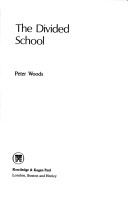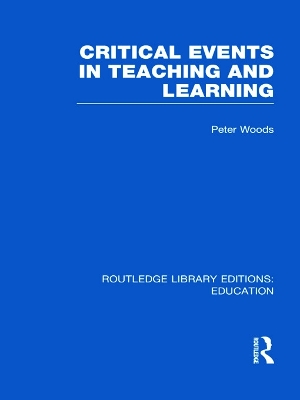Routledge Library Editions: Education
3 total works
This is an introduction to interactionist work in education during the 1970s and 80s. The interactionist viewpoint concentrates on how people construct meanings in the ebb and flow of everyday life - what they think and do, how they react to one another - and has in recent years established itself as one of the leading approaches in education. It has generated illuminating research studies which, by being firmly based in the real world of teaching and dealing with the fine-grained details of school life, have helped to break down the barriers between teacher and researcher.
This volume presents the results of this valuable work, within a coherent theoretical framework, by focusing on the major interactionist concepts of situation, perspectives, cultures, strategies, negotiation and careers. By bringing them together in this way, the author demonstrates their collective potential for the deeper understanding of school life and the possibilities for sociological theory. His book therefore offers both a summary of and a reflection on achievement in the area of interactionism as it relates to schools.
This volume describes and analyses exceptional educational events - periods of particularly effective teaching representing ultimates in teacher and pupil educational experience. The events themselves are reconstructed in the book through teacher and pupil voices and through documentation. A model of 'critical event' is derived from the study, which might serve as a possible framework for understanding other such occurrences in schools.


